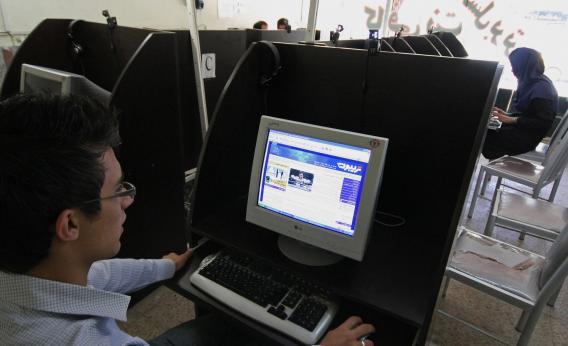Following revelations last year about European companies supplying Arab dictators with mass surveillance systems, the EU Parliament looks poised to introduce new rules restricting the export of spy gear and censorship tools to autocratic regimes.
A resolution calling for stricter oversight of companies selling equipment to countries such as Syria or China was passed overwhelmingly on Wednesday, with 580 votes for, 28 against, and 74 abstentions.
But this is just a first step: The resolution “invites” (as the press release terms it) the European Commission to propose, by 2013, stricter rules regarding “products and services aimed at blocking websites, mass surveillance, monitoring all internet traffic and (mobile) communications, breaking into private conversations and transcribing them, filtering search results, and intimidating internet users including human rights defenders.”
Since it emerged during the Arab Spring that a number of Europe-based businesses had provided dictators with surveillance and censorship tools, European politicians have been scrambling to update regulations. Many were embarrassed and horrified by the number of companies complicit in the “digital arms race.” French firm Amesys provided Muammar Gaddafi’s regime with monitoring equipment to spy on political opponents; Italian Area SpA helped install a surveillance system in Syria with the power to “intercept, scan and catalog virtually every e-mail that flows through the country”; and England-based company Gamma Group supplied Hosni Mubarak’s regime with a five-month trial of a “high-level hacking security system” used to monitor activists.
European authorities firstplaced embargos on the export of surveillance equipment to Syria and Iran. But they are now looking to go tighten up the rules around the export of all surveillance and censorship gear—which may help nudge other governments to follow suit.
U.S. lawmakers have found themselves under mounting pressure to reform export laws after it was reported authorities in Syria and Iran were allegedly using surveillance technology made by American firms. Republican Congressman Chris Smith is currently leading efforts to introduce a series of strict regulatory measures as part of the Global Online Freedom Act, supported by Amnesty International, which would prohibit the export of surveillance or censorship hardware or software to governments in an “Internet-restricting country.”
